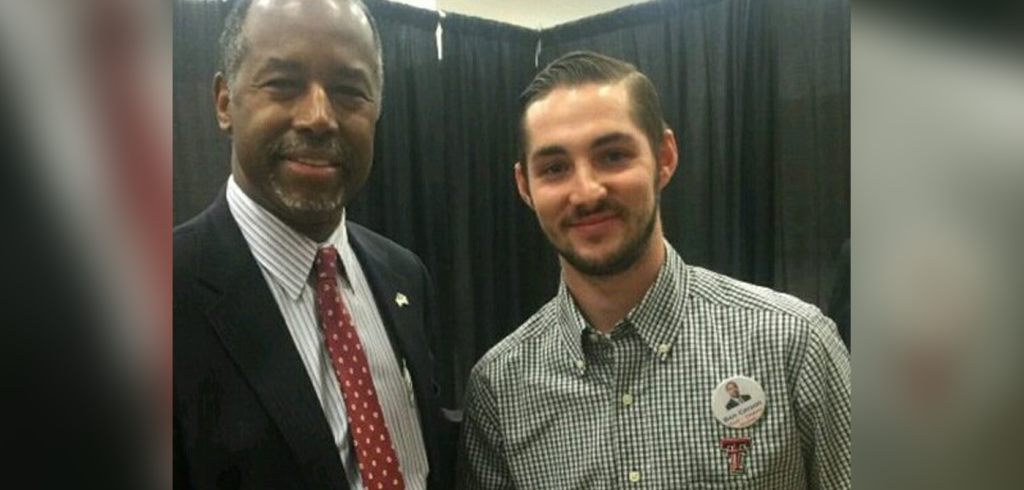Cam Ward: Time to lend the poor a hand by shining a light on lawsuit lending

For decades, Alabama was known as “tort hell.” The legal environment was tilted toward plaintiffs and businesses were taking it hard on the chin. This made some trial lawyers very wealthy, but it cost Alabama untold thousands of jobs as businesses and doctors went elsewhere. During the 1990s, voters flipped the appellate and Supreme Court to Republican justices. In 2010, the people of Alabama elected a conservative, Republican majority to the Legislature. Common sense reforms since then have brought Alabama’s legal environment back to healthy balance. Now over the past few years, a new form of predatory lending – known as lawsuit-lending or litigation finance – has to come to the surface. Lawsuit-lending companies, often backed with hundreds of millions of dollars from Wall Street financial firms, speculate on the outcome of legal cases by placing bets on the final decision of a case in the form of loans to a plaintiff. These loans usually have excessively high interest rates, sometimes exceeding 150 percent, which often drain away payments awarded to a plaintiff. For example, Binyamin Applebaum of the New York Times has reported that in 1995, a woman in Philadelphia borrowed money to finance a lawsuit concerning a car accident. But Applebaum writes that by “the time she won $169,125 in 2003, [her] lenders were owed $221,000.” The aggressive lawsuit lending industry poses two challenges to Alabama’s legal system. First, the exorbitant interest rates on lawsuit loans distort how plaintiffs negotiate in the legal process. Inevitably, plaintiffs refuse reasonable offers of damages from the defendant and push for more and more money to cover the excessive loans they will owe, like the woman from Philadelphia. But the main problem now is that lawsuit lenders operate largely in the dark, outside the normal regulations governing other types of lenders. Lawsuit loans are not subject to overview from the state Banking Department and lenders can operate without a license in Alabama. It is time to bring lawsuit lending into the light of common-sense regulation. In February, I will introduce legislation in the Alabama Senate that will cap lawsuit loan rates at 10%, require lawsuit lenders to obtain a license, and give the state Banking Department oversight of the industry. Every other type of lending is regulated in Alabama; why should lawsuit-lending companies, often backed by hundreds of millions of dollars from hedge fund titans and Wall Street financiers, alone be exempt from state regulation? Conservatives have worked hard to achieve a legal system that is fair to businesses, individuals, and plaintiffs. But left unchecked, lawsuit-lending companies will continue to prey on unsuspecting consumers, drive up the cost of doing business in Alabama, and add more cases to an already overburdened legal system. Tennessee, Arkansas, and Oklahoma have all passed common-sense regulations of the industry over the past few years. It is time Alabama joined their ranks. • • • Republican state Sen. Cam Ward represents District 14, which includes all or parts of Shelby, Bibb, Chilton, Hale, and Jefferson Counties. He is chairman of the Senate Judiciary Committee. Follow him on Twitter: @SenCamWard
Death of Ben Carson campaign staffer offers reminder of importance of service

Too frequently we hear about the awfulness of professional political operatives. Regardless of political affiliation, personal background or beliefs, we’re often called hacks, establishment or worse. We are painted in movies and television shows as heartless and shadowy figures who wheel and deal in often questionable ways to get things done. From the movie Thank You for Smoking which mocks lobbyist, to House of Cards or Scandal the worst of the worst is frequently portrayed. What’s not shown are the bonds and friendships, a brotherhood/sisterhood of mutual respect if you will for those in the field not just fighting beside you but across from you. Be it a primary campaign where your “enemy” this race will be the person picking you up off the floor of a shared office in the the general; or a general election where the “enemy” is someone you go to church or carpool with, the fact is those of us behind the scenes are real people with families and friends and lives beyond election seasons. Read the full article here.
State GOP Chairwoman Terry Lathan lists priorities of Alabama conservatives

With Super Tuesday a little over a month away, and November’s general election just over the horizon, the Alabama Republican Party is making moves to ensure that its candidates stay in power in the state and in Washington. “We believe there will be a rush of voters,” said Alabama Republican Party Chairman Terry Lathan. “People are angry and the strength of conservative voters will trickle down to every other race. We’re one of the reddest states in the nation, so we’re not going to let our guard down.” Lathan, who has been a lifelong Republican and chairwoman of the state party since February of last year, noted that presidential elections draw the largest number of voters in the two-year election cycle. According to Lathan, the most important issues for Alabama voters are foreign policy, the economy, illegal immigration and taxes – issues relevant in state and national elections. “People have not bought into the ‘we don’t have enough, we need more’ idea,” Lathan said about the state’s ongoing budget concerns. “Voters aren’t believing it.” Lathan noted that social issues, such as gay marriage and abortion, are on the minds of conservative voters as well, but she believes that Alabama Republican Party has made its case on those issues in Alabama’s legislative houses. “We have some of the strictest laws in the nation on abortion, with more to come,” Lathan said. “We’ve made ourselves very clear on these issues.” Despite specific causes that seemingly bind all conservative voters, Lathan believes that the most important thing is that voters run to the polls on election days and remain involved with those they elect. “Voters are people who need to speak loud and clear to their representatives,” Lathan said. “Going to vote is only half of our job as citizens. I hope people will continue to be embedded in our process. “I hear a lot of chatter made about backroom deals to pick a presidential candidate. There’s no backroom, no smoking cigars, no fat cats making decisions. That’s nonsense. If you go vote, you’re part of the decision-making process.” Though the Alabama Republican Party won’t endorse any candidate for national or state office, Lathan said she thinks incumbent Sen. Richard Shelby has done an “excellent” job. “He has been a champion of conservative causes,” Lathan said. “His votes have proved it.” Lathan noted that the Republican Party, in Alabama and across the country, is working to attract young and minority voters, an effort made difficult by the “liberal media.” Lathan said the Republican National Committee has established a database of voters, which it shares with all state parties, that can pinpoint voters “almost to where we know the name of their dog.” “I think, no matter the color of your skin or the age on your driver’s license, we as Americans care about the same things,” Lathan said. “This year, in 2016, the nation is going to hear us roar.” Lathan said she thinks 2016 will be a “record-breaking year for the Republican electorate to turn out.” “Any day of the week, it’s better to have a Republican than a Democrat, period,” Lathan said. “I think our country needs us now more than ever.”
Get to know Ron Crumpton, Democratic challenger to GOP incumbent Richard Shelby

Sen. Richard Shelby, who has represented Alabama in Washington since 1986, is facing opposition on both sides this year. One of those opposing the long-time senator is Ron Crumpton, a Democrat from Shelby County with a history of political activism and big ideas for Alabama. Crumpton took his first job at Vestavia Bowl, where he learned to repair the various machines that run the bowling alley, and worked as a landscaper spring and summer. After a back injury ended his career in mechanics and landscaping, Crumpton pursued a degree in Political Science and Journalism at the University of Alabama at Birmingham. Originally planning to be a journalist, Crumpton wrote an article for UAB’s school magazine on the merits of medical marijuana. The article was picked up by several state news outlets and eventually led Crumpton to get involved with legislation that was making its way through the state Legislature. From there, Crumpton spent about eight years lobbying politicians in Alabama and testifying before multiple committees, including the first joint hearing on sentencing reform. When Jeff Sessions, Alabama’s junior U.S. senator, faced no opposition in 2014, Crumpton vowed that Shelby would not have that opportunity in 2016. “I was tired of seeing Republicans run unopposed,” Crumpton said. “And I was tired of seeing Democrats run to the right and get trampled in general elections.” Through his website, Crumpton has released an ambitious “9-Point Plan for the Economy” and an “11-Point Plan for Social Justice.” His plan for the economy calls for raising the minimum wage to $15 an hour, addressing equal pay for women, breaking up the “too-big-to-fail” banks, ending tax breaks for companies moving overseas, investing in infrastructure and education and more. “The majority of these schools are too small, antiquated and just don’t serve their purpose,” Crumpton said of his plan to invest in education. “How can we expect our children to learn the technology of the future when they’re using the technology of the past?” “You can’t be against raising the minimum wage and support cutting social programs and say you’re for the people of Alabama,” Crumpton said, taking a dig at Shelby’s record. Crumpton noted that Shelby currently sponsors and co-sponsors the fewest bills in the Senate and garners the lowest number of co-sponsors for his legislation. “Apparently, all he’s doing is running around fighting Obama,” Crumpton said. “That’s not doing the people of Alabama any good.” While Crumpton acknowledged it will be difficult to match Shelby’s campaign account – whose money comes mostly from Boeing, Lockheed Martin and others, according to OpenSecrets.org – he believes his message will effectively reach its audience. “I think Senator Shelby is under the misconception that working for defense contractors is the same as working for Alabamians; it’s not,” Crumpton said. “I think we can get the support; we’ve just got to point out that he’s not working for Alabama.” Specifically, Crumpton plans to discuss Shelby’s votes to raise the retirement age, to turn Social Security into a voucher program, and to create a flat-tax that would cause seniors to pay highers taxes on Social Security and Medicare benefits. Further, Shelby has voted against provisions to assist veterans and Sessions has called such efforts an “entitlement we can’t afford.” “I think our veterans are an entitlement that we can afford,” Crumpton said. “We seriously need to look at how we do things in this country and in this state.” — This part is part of our ongoing “Get to know” series spotlighting the various candidates in the 2016 Senate race. Click here to get to know the other candidates we’ve highlighted thus far.
For Bernie Sanders, Iowa is chance to turn revolution into reality

Bernie Sanders was halfway through his opening statement – a stern, 45-minute lecture on domestic policy leavened with a dash of political pep talk – when he realized the crowd had missed one of his rare attempts at humor. “That was a joke!” he bellowed. Laughter briefly rippled through the audience as the Vermont senator returned to his statistic-rich pitch for increasing the federal minimum wage to $15 per hour and breaking up big Wall Street banks. Sanders’ down-to-business demeanor on the campaign trail belies the youthful enthusiasm that’s accompanied his unexpected rise in the Democratic race for president. With less than two weeks until voting begins, the 74-year-old self-described democratic socialist could win both Iowa and New Hampshire, a once unthinkable outcome in a primary campaign that was supposed to be tailor-made for Hillary Clinton. “Today the inevitable candidate doesn’t look quite so inevitable,” Sanders told voters who braved icy roads and single-digit temperatures to see him speak Tuesday morning in Fort Dodge. While Sanders first garnered attention for the overflow crowds he drew around the country last summer, he’s making more intimate appeals to voters in the final few days before the Iowa’s Feb. 1 caucuses. On Tuesday, he slipped into a luxury bus (“You can walk around, it’s got comfortable seats,” he said of his new ride) for a day of smaller town hall meetings across central and northwest Iowa. As voters filed into the events, a campaign soundtrack played a heavy rotation of songs touting revolution, a nod to Sanders’ call for a “political revolution” in America. Singer Tracy Chapman‘s “Talkin’ Bout A Revolution” is a favorite, as is the band Flogging Molly’s “Revolution”. Young people with nose rings, green and purple tinted hair, and wearing an array of hoodies filled the seats directly behind the candidate, though the rest of the audience skewed older. A campaign supporter in Carroll used a Robert Frost poem to introduce the senator, urging supporters to make sure Sanders’ “road less traveled” takes him to the White House. Yet there’s little lightness once Sanders begins to speak – no amusing anecdote to open his remarks, save for a small quip about how Iowa’s winter reminds him of his home state. Sanders leans into the lectern and his Brooklyn-accented voice quickly reaches a shout. He repeatedly jabs his index finger at the audience, and when he’s ready to make a point of emphasis, he lifts both arms into the air as if conducting an orchestra. Sanders, an independent who caucuses with Democrats on Capitol Hill, began his campaign with firm rules about what he was not willing to do to win the presidency. He’s among the most vigorous critics of super PACs, political groups that can accept donations of any size, and frequently touts his campaign’s reliance on small donations. He also vowed to avoid negative, personal attacks on his rivals. But with the prospect of victory in the early states at hand, Sanders is testing the limits of that latter pledge. In addition to his shots at Clinton’s evaporating inevitability, he relishes pointing out the big-money speaking fees Clinton received from Goldman Sachs, the Wall Street giant that’s a frequent villain in Sanders’ speeches. “Goldman Sachs also provides very, very generous speaking fees to some unnamed candidates,” he said during a town hall at a winery in Carroll, just across the street from Clinton’s campaign office in town. While Sanders may be striking a chord with voters seeking an outsider candidate, he’s also a practiced politician and it’s clear he’s acutely aware of his standing in the Democratic race. Taking a page out of Republican front-runner Donald Trump‘s playbook, Sanders has recently started opening his remarks with lengthy references to his improving poll numbers. He’s particularly fixated on surveys showing he’s more likely to beat Trump in the general election than Clinton, underscoring his irritation with suggestions from within his own party that’s he’s unelectable. He also knows he lacks foreign policy experience, particularly when his record is stacked up next to Clinton’s four years as secretary of state. So he reaches for an easy applause line with his liberal base, reminding voters of Clinton’s vote in favor of the 2003 invasion of Iraq – then noting former Vice President Dick Cheney also had foreign policy experience. Even if Sanders can turn his momentum into victories in Iowa and New Hampshire, there are daunting challenges ahead. He’s less well known among minority populations, which some Democrats see as a vulnerability for him as the race heads to states with more racially diverse populations. Sanders seems well aware of this, too. He’s making an effort in South Carolina in particular to reach out to black voters, hoping that like the crowds that greet him in snowy Iowa, they’ll see the rumpled, aging socialist as their advocate. “This is it. Here I am,” Sanders said as he closed an event in Iowa. “For better or worse.” Republished with permission of the Associated Press.
5 Alabama hospitals remain among nation’s worst for price gouging patients

Five Alabama hospitals are among the nation’s worst in terms of price-gouging, according to a nationwide study of such activity. Fifty U.S. hospitals are charging “approximately ten times their Medicare-allowable costs.” according to an article about the study in the Health Affairs online journal. The majority of those hospitals, 50 percent, are community health systems while another 28 percent are affiliated with the Hospital Corporation of America. Despite the data having been collected between 2012 and 2013, Health Affairs’ Director of Communications Sue Ducat claims the information “still holds up.” The article was published in Health Affairs’ June 2015 issue. The Alabama hospitals listed include Gadsden Regional Medical Center, Brookwood Medical Center, Riverview Regional Medical Center, and Decatur Morgan Hospital – Parkway Campus. A Washington Post article, which examined the same data, had the breakdown as follows concerning Alabama hospitals: Gadsden Regional Medical Center was the worst offender in the state, ranking sixth on the list and marking up prices by 1,190 percent; Brookwood Medical Center came in at 14th, marking up prices by 1,030 percent; Riverview Regional Medical Center was ranked 18th, marking up prices by 1,000 percent; and Decatur Morgan Hospital – Parkway Campus was ranked 23rd, marking up prices by 980 percent. Not listed in the Washington Post article, but identified by one of the study’s authors, Ge Bai of Washington and Lee University, was Stringfellow Memorial Hospital in Anniston, which is marking up prices by about 780 percent. According to a news release from Johns Hopkins Bloomberg School of Public Health (JHBSPH), these prices mostly affect “out-of-network patients and the uninsured, as well as auto and workers’ compensation insurers.” According to Leigh Hays, Director of Marketing and Communications for Decatur Morgan Hospital – Parkway Campus, the hospital was owned by a different entity at the time the research was done. Since then, the hospital has come under the supervision of the Huntsville Health System and has decreased its cost to patients by 58 percent, putting it more in line with other not-for-profit hospitals. Several Alabama lawyers were contacted for comment concerning the ability of hospitals to price-gouge, as well as possible moves that consumers can make to protect themselves. While all noted that they do not have the proper credentials to go on record, most mused that the reason for the exorbitant charges was because there is no law on the books to curtail such practices. The study calls for public disclosure of hospital markups to provide consumers with a way to decide where they will go for surgeries and routine medical care, as well as legislation to set a “maximum markup over cost that a hospital can charge to any patient.” “This system has the effect of charging the highest prices to the most vulnerable patients and those with the least market power,” Gerard F. Anderson of JHBSPH, another of the studies authors, said in the press release. “The result is a market failure.” With the exception of Decatur Morgan Hospital – Parkway Campus, none of the hospitals in question responded to requests for comment.
Former Gov. Don Siegelman’s son seeks records about father’s prosecution

The son of former Gov. Don Siegelman has filed a lawsuit seeking Department of Justice documents about his father’s prosecution. The lawsuit filed Tuesday in Birmingham federal court accuses the Department of Justice and its Office of Professional Responsibility of improperly withholding records the family has sought through public records requests. According to the lawsuit, Joseph Siegelman last year filed a records request for documents related to the office’s review of prosecutors’ behavior in the case. The lawsuit said the request was denied because of Freedom of Information Act exemptions for protected communications between agencies, law enforcement records and information that invades a person’s privacy. A federal jury convicted Siegelman in 2006 of bribery and obstruction of justice. The former governor is serving a 6 1/2 year prison sentence. Republished with permission of the Associated Press.


